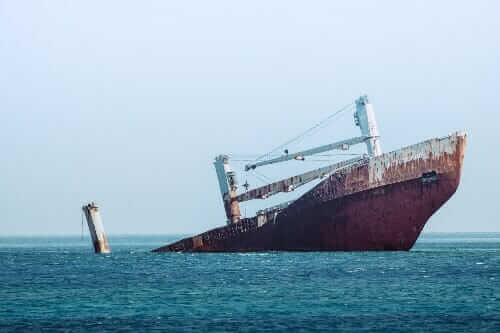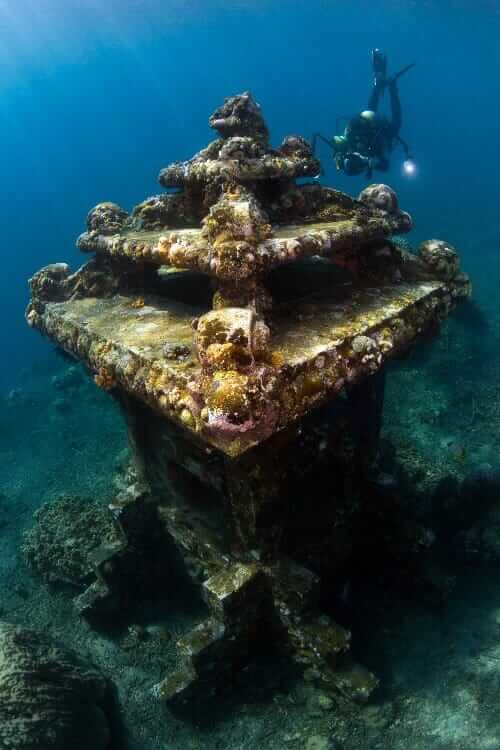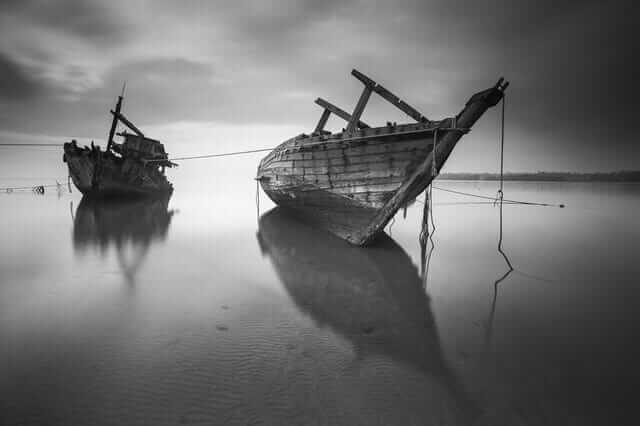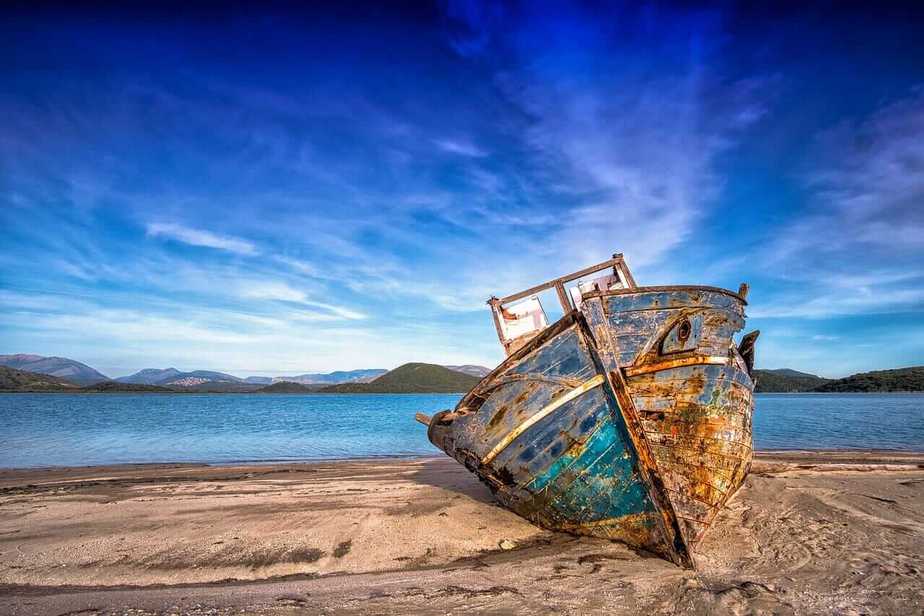It’s essential that any boat owner who is looking to get boat insurance or already has one, to be conversant with the kind of circumstances under which boat insurance claim problems arise that may lead to rejection of your claim settlement request.
There are numerous and complex marine insurance policies and not having a vast knowledge of them may lead to your application being denied merely due to ignorance.
Boat Insurance Claim Problems:
There has been talk over the years that insurance companies capitalize on these complex and many policies and policyholder’s ignorance to go around systems and come up with ways to deny legitimate claims.
We won’t put all the blame on insurance companies for causing these troubles, since there are instances that boat owners could save the whole situation from happening like replacing a cheap damaged part.

Once you file a claim, your insurance company evaluates your policy and the circumstances under which the claim is based on to decide whether to compensate you or not. If the company finds an anomaly with your claim, they are therefore free to legally deny you compensation.
This article will look into the circumstances under which your insurance provider may deny you compensation and the most common boat claims and how to prevent them from occurring.
Reasons Why Your Boat Claim May Be Denied:
To most people, owning a boat is their second most significant investment and priority. As much we all enjoy boating and fishing, it can be a nightmare when your boat is involved in an accident. It gets worse when you begin filling the paperwork for compensation. Without the proper knowledge, your boat is as much as going to the drains.
1. Neglect
Even though boats are expensive toys to buy and maintain, doesn’t mean that everyone gives them the proper care and maintenance that they deserve. Sometimes your vessel doesn’t ask much from you, simple repairs and maintenance practices like regular servicing and changing the oil. If your insurance provider examines your claim and it turns out that the damage caused on your boat is your fault due to poor maintenance of the vessel or parts, you may not be able to recover your losses.
Assuming you live in a place where temperatures are extremely low and it happens that you forget to empty water from the engine, if the water freezes and breaks or damages the engine, your insurance provider won’t cover your losses as it was somewhat preventable and you are to blame.
However, there may be times where damage on your vessel may not be your fault. To prevent the company from wrongfully denying you compensation based on neglect, it’s recommended that you keep a record of all parts, maintenance, labor, and repairs that you have done on your boat. Having these kinds of records increases your chances of recovering your losses.
Let’s look at situations under which your insurance provider may reject your claim.
2. Proper Documentation
Insurance guys are good at expecting your future needs, but that doesn’t mean that they can read your mind either. To be on the safer side, it’s advised that you inform your agent of any new equipment or missing items. By this, your insurance company will be aware of the property within the boat in case it went missing.
If equipment or property went missing from your boat, with no police statement or a piece of physical evidence that the insurer can confirm and agree with, they wouldn’t be liable for covering your losses.
Loose equipment should be stored in a locked storage locker in the boat, or a secure location off the vessel. This is a step to further ensure the safety of your equipment without having to fill any paperwork and go through the tedious process of a theft insurance claim.

3. Policy Choice
Before signing the papers when taking a boat cover, take your time to read through and understand what the policy that you are about to sign covers you against. As I had said, watercraft policies are many, confusing and diverse. Most people assume that they are covered until they are involved in an accident or some other problem, for them to realize that they were only partially covered. Submitting a claim that is not covered by your policy will automatically be rejected by your insurance provider and you will have to incur the expenses involved.
If you have a small boat covered under a Homeowner’s policy and it happens to sink, your insurance company will only cover your boat. Things like Fuel Spill Liability and Wreckage Removal are not covered under the Homeowner’s policy; hence you are left exposed to hefty expenses.
In another scenario, if your boat sank while you are fishing, and stuff like a tackle box, poles, and fish-finder get lost in the process, the insurance company will only cover your boat and leave out your fishing gear. In this case, you should have included Personal Effects coverage to your policy to cover your fishing gear and other equipment in the event of a loss.
Among other small benefits that the policyholder overlooks or assumes to be covered are Pet Coverage, Small Claim Forgiveness and Disappearing Deductibles and as petty as they may look, they can make a huge difference in the event of a loss. Check with your agent or review your policy contract to see what you have.
Another misunderstood segment is what happens when your boat is hit by an uninsured boat. You and the rest of the people on board are not covered unless in your policy you have Uninsured Boater coverage. If you have this coverage, then your cover will pay for the injuries brought about by the uninsured vessel.
Mechanical breakdown is explained as a mechanism or a part on the boat that fails/breaks down/malfunctions. This might be internal engine damage caused by a thrown rod or bilge pump malfunctioning. In most occasions, this kind of loss is not a result of the owner’s fault yet most insurance policies don’t cover damages resulting from a mechanical breakdown.
Ensure that you review and understand your policy to avoid surprises when making a claim.
4. Temporal Cover
There are some situations where an event leading to loss or damage would be undisputedly covered by the insurance company. But because you take the risk and decide to operate without an insurance cover, an event occurs that leads to damage to your boat, injuries and a lot more. No insurance provider will pay for this kind of losses-just you because you didn’t have a policy or you allowed it to expire during the off-season.

An example is since it’s over the winter and you won’t be using your boat, it happens to catch fire, and your boat is ruined. Usually, you wouldn’t have any problems when seeking compensation for the vessel, but since you had terminated your policy over winter, you will have to incur the losses and expenses involved. It is therefore advisable to have an insurance cover at all times.
In another scenario where your uninsured boat is involved in an accident that leads to damage and injuries, you put yourself at a severe financial risk considering that you have to pay for the losses.
5. Time Taken Before Making A Claim
Taking too much time or too little time before making a claim sometimes may lead to the claim getting rejected. However, these situations vary and it necessary to know when and how to react under different circumstances.
Assume that you have notified your insurer that an incident has occurred that has led to loss and damage, worthy a claim. But for some reason, you take a significant amount of time before notifying your insurance provider, leading to issues on settlement of the claim. It is there advisable that in some instances, you have the insurance adjustable examine the boat immediately after the incident to determine what caused the loss. If the insurer can’t identify the real cause of the damage, then they can’t settle your claim since they won’t know if the event was covered under your policy.
In another case, you decide to take your vessel’s engine for a repair without notifying your insurer. Once it’s fixed by the mechanic, it fails afterward. When a surveyor is called upon to access the engine, the exact cause of the engine failure cannot be determined, meaning your claim won’t be settled. Therefore, claiming seeking repair isn’t recommended.
6. Sailing Off The Chart
Sailing off the chart that is included in your policy may sometimes lead to boat insurance claim problems. If you sail to waters beyond your map or limit, and an event that will lead to loss or damage occurs, such a claim will be rejected by your insurer.
Before taking your boat out of your navigation area, ensure that you notify your insurer. Also, make sure that you have read your chart to help you from innocently paying for losses that your insurance package already covers.
7. Delay Or Errors When Filing
Be careful when making your claim not to make any errors like assessment errors, submitting it under an incorrect policy or even minor typing errors. Your insurer may sometimes use such excuses to tie you down to cause unnecessary frustration or delay payment.
Be careful when making your claim not to make any errors like assessment errors, submitting it under an incorrect policy or even minor typing errors. Your insurer may sometimes use such excuses to tie you down to cause unnecessary frustration or delay payment.
Before filing the claim forms, it’s advisable that you seek professional help from someone experienced and qualified to review your forms and offer advice. A record of advice and responses from your insurer is a bonus in case things go south and legal action is necessary.

8. Lack Of Advocacy
Insurance companies have earned a reputation for being notorious for delaying or rejecting legitimate claims in the hope of stopping boat owners from seeking settlements over valid claims.
In such situations, seeks the services of a lawyer who will give you professional advice and assist you to recover your losses.
9. Rules And Regulations
Once you have filed your claim, the insurer has to ensure that the rules and regulations about operating your boat where never broken, at the time the loss occurred.
If you are found to be intoxicated or under drug influence at the time the accident occurred, expect no compensation as most of the insurance companies will be quick to deny any liability for damages or injuries arising from the crash.
Common Boat Insurance Claims:
Even though boats are used infrequently compared to cars, you will be surprised by the number of claims that are filled each year. Though needing to file for a claim is the last thing that comes to boat owners’ minds, there are a lot of variables that they can’t control. So either way, it will come a time where you will have to fill a claim or at least someone close to you. However, there are a few variables you can control to keep your boat safe. Here are seven common boat insurance claims and how to prevent them from happening.
1. Theft Of Boat
Taking the most significant piece of the pie is the theft of boats. Of all claims filed, theft of watercraft tops the list with jet skis being the most vulnerable and easiest target.
However, you can protect your boat from being by marking its Hull Number and installing anti-theft devices like a Digitally Encoded Security System (DESS).
2. Theft From Boat
There is no limit as to what can’t be stolen off your boat, but stuff that is easy to move and hide are the primary targets with generators and outboard motors being the most stolen items.
To prevent your items from being stolen, you may stamp or make unique easy to spot markings and maintaining an updated inventory.
3. Collision With Underwater Object
Collisions with underwater objects may be caused by murky waters reducing visibility, sailing on unfamiliar waters or inexperience.
This kind of collision can be avoided by consulting with fellow boat owners before exploring new water and installing a GPS.

4. Collision With Other Boats
Boats crashing into each other results in costly total damages, and happen more in small bodies of water with a large number of boats. Collisions occur majorly due to over speeding and the operator not maintaining a keen eye on other vessels.
To avoid these human error related accidents, it’s advised that you take a boating safety course to be more conversant with boating and navigation rules as well as being alert especially when sailing in bodies with a dense population of boats.
5. Fire
Although fire-related damages are not that common among insurance claims, they are highly unpredictable, and you never know how dangerous they can get.
To protect yourself and the passengers aboard, ensure that you have fire extinguishers within reach and that you run some checks on your boat like confirming there are no gas or fluid leaks and checking for electrical anomalies that may pose a fire threat.
6. Sinking
Sinking deemed by many as the most expensive boating accident and may lead to engine damage, total loss of the boa, injuries and even loss of life.
Although most boat owners usually rule out the possibility of their boats sinking, slipping of moorings, excessive corrosion and unfavorable weather account for most incidents.
7. Malicious Boat Damage
This is another insurance claim that occurs in large numbers. With so many people filled with ill intentions and a lot of time in their hands, you are never safe from this kind of damage.
It usually occurs when you are not around the boat if you spend most of your time on the ground away from your vessel, it’s paramount that have this kind of coverage at all times to protect your boat.
Boat Insurance Coverages:
For any boat owner, ensuring your boat against damage and other likely scenarios that would lead to loss is always a smart financial step. Insurance companies differ regarding packages that they offer, but there are still some common packages among them. Let’s look at some of them and how they cover your boat so that when you review your boat insurance policy, you will know what to look for.
Standard Boat Insurance Coverages:
1. Full Replacement Cost
For this coverage, if you carry a collision or comprehensive coverage, the insurance company pays for all the costs involved in repairing your boat into its condition before the accident occurred.
2. Bodily Injury And Property Damage Liability
This covers when you are involved in a boating accident and liable for property damage and injuring others. The insurance pays for all the repairs or replacement of all any vessel, property or objects that you damage as a result of the accident. In case you are sued, the insurance company also pays your legal fees.

3. Fuel Spill
Fuel spillage of any kind like as a result of a mishap while fueling at the fueling station, sunken boat or a leaking tank is all paid for by the insurance company.
4. Wreckage Removal
In case your boat sinks and you are legally required to remove it from the water, the cost of removing it is paid by your insurer.
5. Roadside Assistance
When you have a trailer coverage included to your policy, the insurance company pays for the expenses involved in towing your disabled vehicle and watercraft to a repair shop.
6. Water Sports Coverage
If you cause damages or injuries from knee-boarding, wake surfing, wake-boarding, tubing or similar activities, your insurer pays for them.
Optional Boat Insurance Coverages:
1. Total Loss Replacement
If your boat is not more than a model-year-old and you are the original owner, you can get this cover whereby, if the boat is totaled inside five model years, you are given an option by your insurer to be paid the original amount you paid for the totaled boat or being bought a new one. And if your vessel gets written-off outside the five-year model window, the insurer gives the original purchase amount of the vessel.
2. On-Water Towing
If your boat breaks down or is disabled while on water, the insurer pays for the costs of jump starts, towing your boat, fuel delivery if your watercraft is disabled and soft un-groundings.
3. Fishing Equipment And Carry-On Items
Depending on your insurer, you get a full replacement of a certain limit amount for fishing gear and personal property like phones and scuba gear or other personal items on board that are lost or stolen.
4. Mechanical Breakdown Coverage
Your insurer pays for the replacement or repairs lower and upper units of an outboard or inboard motor if you are having a mechanical breakdown.
5. Comprehensive And Collision
These are two different and separate covers. Comprehensive covers for events that beyond your control like vandalism, fires, a sunken boat, hurricanes, heavy winds, theft or weather-related damages.
Collision covers losses or damages arising from boating accidents like hitting a dock, submerged object, and another boat.
6. Uninsured Or Under-Insured Boater
If your boat is hit by another vessel that is either under-insured or uninsured, the insurer pays for the injuries and damages arising from the accident, to the limit of your policy.
7. Medical Payments
Depending on your coverage’s limit, the insurer pays for you and your passengers’ medical bills in the event of a boating accident.
As a boat owner, you should always remember that most of the damages that can happen to your boat are not planned for or expected. The losses, as a result, may sometimes go beyond tens of thousands. To play safely without jeopardizing your financial position or stability, hooking yourself with a reputable insurance company and adding some special covers to your policy that may be beneficial to you should be your first and smartest move.
In the event damage occurs to your boat, information provided in this article will always keep you a step ahead when seeking settlement of your claim. Insurance companies may be a bit dodgy when handling insurance claim problems, but you are now equipped with the knowledge to see them coming from all angles. Otherwise, review your current policy contract and add some covers that you may need.
